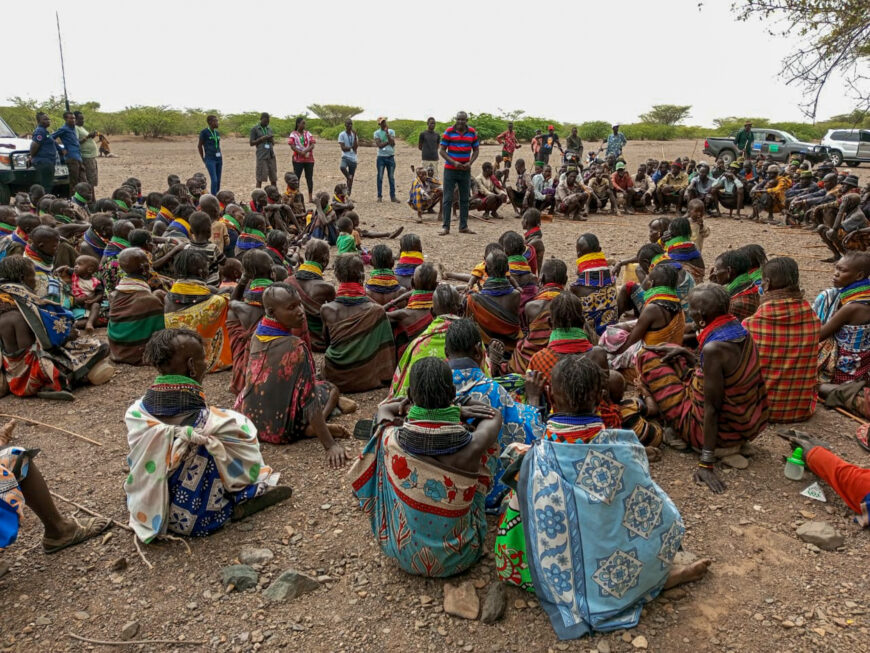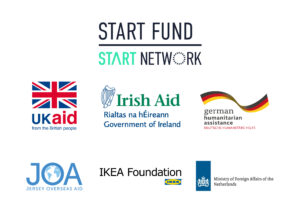Kenya is currently experiencing a historic multi-season drought that has led to acute food insecurity and malnutrition in the Arid and Semi-Arid Lands (ASALs). In this part of Kenya, most of the population relies on agro-pastoralism for survival and is therefore severely affected by the consequences of the drought.
Over 6 million people face acute food insecurity across the ASALs, and at least 1.2 million people are estimated to be in IPC4 (emergency phase).
According to the National Drought Management Authority, the drought situation is worsening in 20 of the 23 ASAL counties. While food assistance is mitigating the worst effects, food consumption remains largely insufficient. The severity of needs exceeds food assistance provided in highly drought-affected areas like Turkana, where 60% of the population is acutely food insecure.
Limited water sources are threatening the health of most vulnerable groups, especially children and the elderly. The global acute malnutrition rate in the county currently stands at 38.4%, with no hope of rainfall in the foreseeable future that could boost food production.
Cash assistance, a lifeline for the most vulnerable families
While the situation continues to get dire and more humanitarian interventions are being advocated for, ACTED, together with its local partners, TUPADO and SAPCONE, supported by Start Network, have been working to strengthen the resilience of drought-affected communities in Northern Turkana.
As part of the Early Action Emergency Drought Cash Response, 1,155 households were targeted according to ACTED’s vulnerability criteria through a community-based targeting process and then presented to the community for public validation. Priority was given to IPC4 families, those who lost their assets (livestock) due to the drought, women and child-headed households, the disabled, pregnant, and lactating women, and the ill or elderly. This was done to ensure vulnerability targeting and community acceptance.
The activity aimed to assess the basic needs of the beneficiary households through a baseline assessment prior the first cash distribution in order to monitor the impacts and benefits of the cash intervention on families’ food security and consumption scores. Baseline assessments are conducted to ensure a good understanding of the situation and needs in the area. For this project, the survey was household-based, so it collected information on households, their size, the impact of the drought on their food security and livelihoods, consumption patterns etc.
The selected beneficiaries, who were most in need, received cash assistance, an amount of cash to be used to provide for the vital needs of their families. Around $80 was handed out to each family per cycle during the two distribution cycles.

Betty, a pastoralist forced to change livelihoods
Betty is a pastoralist. As pastoralists rely on their livestock to get their day-to-day livelihood, the loss of the livestock due to the drought pushed her to the brink of poverty since she could no longer provide for her family.
With no other means of earning her living, Betty had no choice but to start fetching firewood to burn charcoal, which she would then sell. With the price of bucket of charcoal only worth around US$ 1, she still could not afford enough food given the soaring food prices. Their feeding was not consistent because they had to forego some meals to make it through a day.
“I have to feed four people from the sale of charcoal. We could only afford to buy maize and maize flour. That’s how we used to cope. With the money from the cash assistance, my family no longer skips meals and can afford some vegetables and lunch, something that we haven’t been accustomed to. I was also able to buy my children’s uniforms and pay part of their school fees. Searching for water was easier since I had the energy to walk long distances,” explains Betty.
A total of 1,155 families benefited from the two rounds of cash interventions. The response enabled drought-affected communities to improve their food security and reduce the risk of entering an emergency phase.
